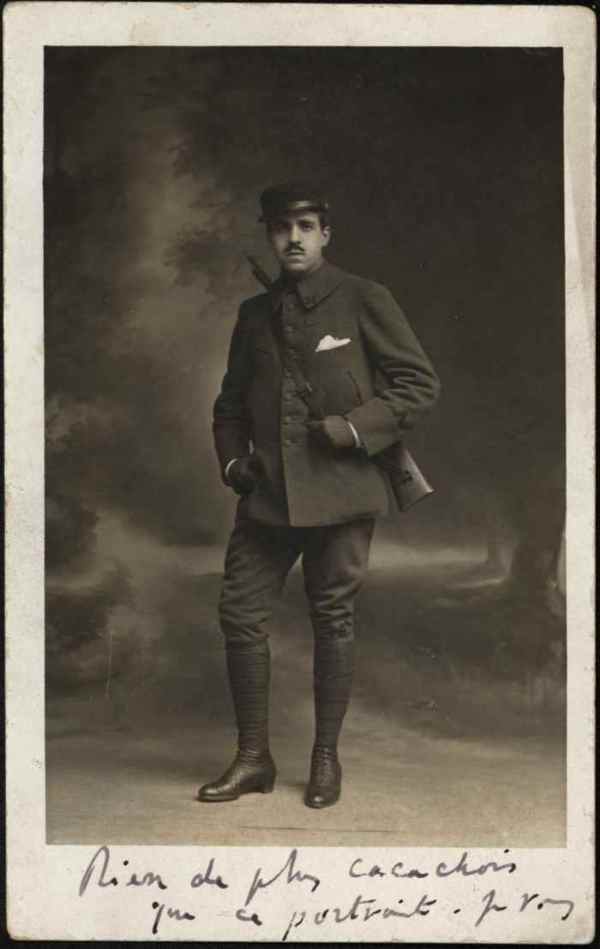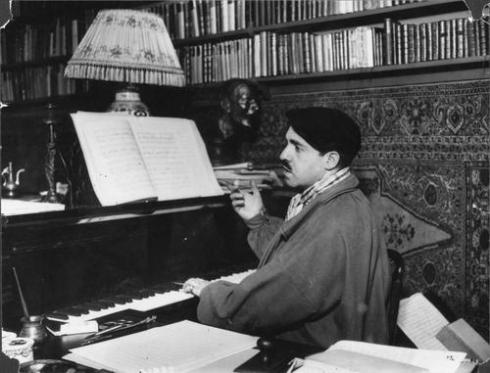 
 字體:小 中 大
字體:小 中 大 |
|
|
||||||
| 2018/01/28 19:16:41瀏覽1872|回應0|推薦6 | ||||||
當1894年, 19歲的Reynaldo Hahn (1874 –1947)遇見小3歲的Marcel Proust (1871 –1922), 是對藝術的共同愛好使他們成為愛人(Proust and Hahn shared a love for painting, literature, and佛瑞 Fauré). 兩人更是互相砥礪, 學習, 共同追求藝術之美. 我原來並未太注意, Reynaldo Hahn 其實在1888年費加洛報已經報導他寫的歌"Si mes vers avaient des ailes" (詞來自雨果)早就一炮而紅. 其後許多歌曲也都很成功. 所以他們相識之時, Proust必然帶著極大的仰慕. Hahn本人還是技術極佳的鋼琴家, 作家, 評論家, 生理學家, 老師.
成名曲見此
Hahn其後又寫了17齣歌劇, 很多芭蕾音樂等等 (見作品集 https://en.wikipedia.org/wiki/List_of_compositions_by_Reynaldo_Hahn ) 作品量相當驚人, 其中一齣就叫”Mozart”! 但他對後代最大的影響還是他的藝術歌曲 ! 音樂見此 (屬於法式有念白的歌劇), 稍感呆版
晚年, 還有一首鋼琴協奏曲…..聽來很像拉赫曼尼諾夫
雖然兩人都並未出櫃, Proust一生至少確定的愛人是Reynaldo Hahn,( Marcel Proust, Lettres à Reynaldo Hahn, Paris 1956) 與 Alfred Agostinelli (Albertine的原型, 1888-1914). 而且, Hahn 應該就是啟發Proust 體會到自己內心同性戀傾向的那人! 他們的友誼維持得蠻長, 即便Proust 1913重逢愛上 Alfred Agostinelli 後(1907在卡堡Cabourg 初遇Agostinelli, 是Proust計程車司機), Agostinelli 1914便墜機身亡. 他寫信給Hahn訴苦衷: 1. My dear boy you are very kind for thinking that Cabourg must have been painful to me because of Agostinelli. 2. I truly loved Alfred. It isn’t enough to say I loved him, I adored him. And I don’t know why I write that in the past tense, for I love him still. And yet, in feelings of grief, there is an involuntary element, as well as an element of duty that fixes the involuntary part and ensures its durability. (這裡, 還證實了, Proust自己對非自主involuntary element 會帶來的感受是來自自身經驗) 直到Hahn 1914去參加一次世界大戰, 都還有寫信與寄照片給Proust. 
所以, Reynaldo Hahn到底在”追憶”一書中, 扮演哪個角色的原型呢? 有人認為是Albertine, 但也有人認為是Gilberte (菊貝)…..因為後者是他在年輕時期就認識的朋友, 愛上過, 友誼也持續下去. (Gilberte is also or even mostly based on Reynaldo Hahn or Lucien Daudet, whom Proust loved as a boy). ^^^^^^^^^^^^^^^^^^^^^^^^^^^^^^^^^^^^^^^^^^^^^^^^^^^^^^^^^^^^^^^^^^^ 參考: Letter from Proust to Reynaldo Hahn : https://nonsolusblog.wordpress.com/posts-by-image/letter-from-proust-to-reynaldo-hahn-october-1914/ https://uberty.org/wp-content/uploads/2015/12/Proust-1.pdf https://www.readingproust.com/albertin.htm http://involuntarymemory.blogspot.tw/ https://thetruthaboutsinging.wordpress.com/2014/04/02/reynaldo-hahn-introduction/ https://zh.wikipedia.org/wiki/%E9%9B%B7%E7%BA%B3%E5%B0%94%E5%A4%9A%C2%B7%E5%93%88%E6%81%A9 https://en.wikipedia.org/wiki/Reynaldo_Hahn
By the age of nineteen in 1894, Hahn had written many songs about love; however, his worldly sophistication masked shyness about his own personal feelings. He had close intimate friendships with women, and they were clearly fond of the gallant and charming young composer. Cléo de Mérode, a famous beauty of le beau monde and three years older than Hahn, inspired him to write: "I worship her as a great and perfect work of art". Despite this tribute to her, he reportedly loved her only at a distance his whole life. The famed courtesan Liane de Pougy referred to Hahn in her diary as the "sweetness in her life." Though close friends, their relationship ended when de Pougy married. Hahn famously told her: "Goodbye Lianon. I hate married people." Hahn was a closeted homosexual, even though in his personal letters he was frequently critical of homosexuals and homosexuality.[5] In 1894, Hahn met the aspiring writer Marcel Proust at the home of artist Madeleine Lemaire. Proust and Hahn shared a love for painting, literature, and Fauré. They became lovers[6] and often travelled together and collaborated on various projects. One of those projects, Portraits de peintres (1896), is a work consisting of spoken text with piano accompaniment. Hahn honed his writing skills during this period, becoming one of the best critics on music and musicians. Seldom appreciating his contemporaries, he instead admired the artists of the past (shown in his portraits of legendary figures). His writing, like Proust's, was characterised by a deft skill in depicting small details.
|
||||||
| ( 知識學習|其他 ) | ||||||










